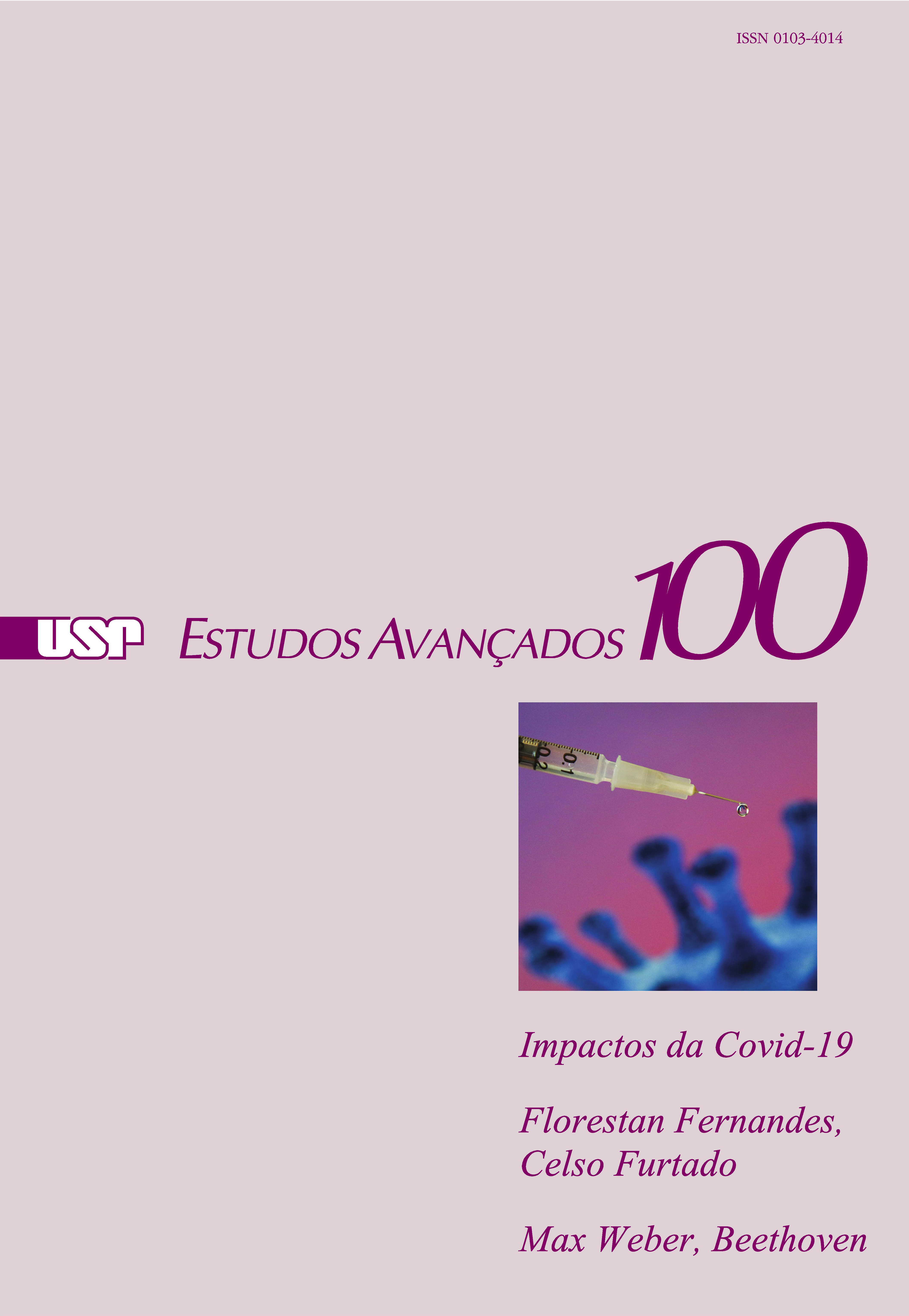A diversidade global dos Institutos de Estudos Avançados
DOI:
https://doi.org/10.1590/s0103-4014.2020.34100.022Palavras-chave:
Institutos de Estudos Avançados, Produção mundial de conhecimento, Política científica, Interdisciplinaridade, Iniciativas de excelênciaResumo
Quando o primeiro Instituto de Estudos Avançados foi fundado em Princeton em 1930, ninguém previu que ele se tornaria um modelo que se espalharia por todo o planeta. Especialmente nos últimos 20 anos, um número significativo de novos Institutos de Estudos Avançados (IEA) surgiu em muitas regiões ao redor do mundo. Classificados como “paraísos acadêmicos”, eles costumam ser considerados como ilhas isoladas ou torres de marfim, mas essa é apenas uma parte da história: pretendo mostrar que (a) os IEA são ao mesmo tempo produtos e motores da globalização da pesquisa e estão intimamente imbricados com diferentes tendências das políticas científicas globais; e que (b) esses institutos, apesar de seu pequeno porte, tiveram um papel importante no desenvolvimento universitário e científico e ainda continuam a tê-lo. Por fim, gostaria de apresentar um panorama dos desafios e tarefas futuras dos IEA como espaços de produção global de conhecimento.
Downloads
Referências
ADES, C. Institute of Advanced Studies at the University of São Paulo (IEA): commitments. Estudos Avançados, v.25, n.73, p.159-74, 2011. Disponível em: <http://www.iea.usp.br/en/journal/19ades>.
ALTBACH, P. G. Empires of Knowledge and Development. In: ALTBACH, P. G.; BALÁN, J. World Class Worldwide, Transforming Research Universities in Asia and Latin America. Baltimore, 2007. p.1-30.
_______. Massification and the Global Knowledge Economy: The continuing Contradiction. International Higher Education, n.80, p.4, Spring 2015.
FLEXNER, A. Remarks of the Director at the Organization Meeting. October 10, 1930.
_______. Confidential Memorandum to the Trustees of the Institute for Advanced Study. September 26, 1931.
_______. The Usefulness of Useless Knowledge. Princeton University Press (1939), 2017.
FRICK, W. et al. Introductory Statement “Mapping the World of UBIAS”. In: University-based Institutes for Advanced Study in a Global Perspective: Promises, Challenges, New Frontiers, Conference Proceedings. Ed. by Freiburg Institute for Advanced Study, June 2011, p.10-18.
GODDARD, P. There are no excuses in paradise. The Institute for Advanced Study. Past, Present and Future, Keynote speech at the inauguration of the FRIAS on 05.05.2008, unpublished manuscript.
_______. The Development of Institutes for Advanced Study and their Role in the Contemporary University, Presentation at Nagoya University (11.03 2016), unpublished manuscript.
HAZELKORN, E. World Class Universities or World Class Systems? Rankings and Higher Education Policy Choices. In: HAZELKORN, E. et al. (Ed.) Rankings and Accountability in Higher Education: Uses and Misuses. Paris: Unesco, 2013. p.71-94.
_______. (Ed.) Global Rankings and the Geopolitics of Higher Education – Understanding the influence and impact of rankings on higher education, policy and society. New York, 2017.
INSTITUTE FOR ADVANCED STUDY PRINCETON. (Ed.). Institute for Advanced Study: An introduction. Princeton, 2013. p.15.
LAUDER, C. Constructing Hidden Narratives, The History of the Institute for Advanced Stduies in the Humanities (IASH), at the University of Edinburgh, 1969-2013. History of Universities, v.XXXI/2, published to Oxford Scholarship Online: January 2018.
OECD. Promoting Research Excellence. New Approaches to Funding, 2014.
PADBERG, B. The Center for Interdisciplinary Research (ZiF) – Epistemic and Institutional Considerations. In: WEINGART, P.; PADBERG, B. (Ed.) University Experiments in Interdisciplinarity – Obstacles and Opportunities. Bielefeld, 2014. p.95-113.
SCHELSKY, H. Grundzüge einer neuen Universität. Eine Denkschrift [17.08.1965]. In: MIKAT, P.; SCHELSKY, H. Grundzüge einer neuen Universität. Zur Planung einer Hochschule in Ostwestfalen, Gütersloh 1967a, S. 35-70. Disponível em: <https://www.uni-bielefeld.de/(de)/ZiF/Allgemeines/Schelsky_2.pdf>.
_______. Das Zentrum für interdisziplinäre Forschung. Eine Denkschrift.
In: MIKAT, P.; SCHELSKY, H. Grundzüge einer neuen Universität. Zur Planung einer Hochschule in Ostwestfalen. C. Bertelsmann Verlag, Gütersloh 1967b, S. 71-88. Disponível em: <https://www.uni-bielefeld.de/(de)/ZiF/Allgemeines/Schelsky.pdf>.
THACKRAY, A. Notes Towards a History, based on a talk given to the Board of Trustees on April 27, 1984. Disponível em: <https://casbs.stanford.edu/casbs-origins>.
WITTROCK, B. Institutes for Advanced Study: Ideas, Histories, Rationales, Keynote Speech on the Occasion of the Inauguration of the Helsinki Collegium for Advanced Studies, University of Helsinki, December 2, 2002, unpublished.
Publicado
Edição
Seção
Licença
Copyright (c) 2020 Britta Padberg

Este trabalho está licenciado sob uma licença Creative Commons Attribution-NonCommercial 4.0 International License.
Estudos Avançados não celebra contrato de cessão de direitos autorais com seus colaboradores, razão pela qual não detém os direitos autorais dos artigos publicados. Os interessados em reproduzir artigos publicados na revista devem necessariamente obter o consentimento do autor e atribuir devidamente os créditos ao periódico.


